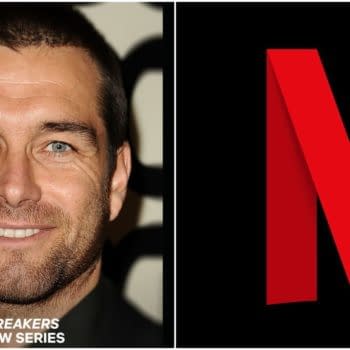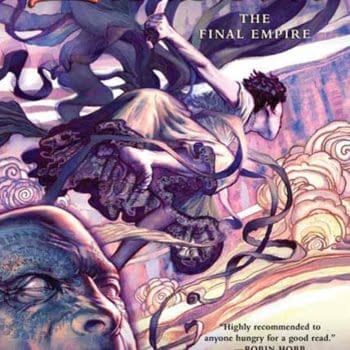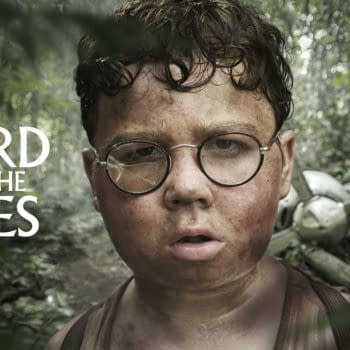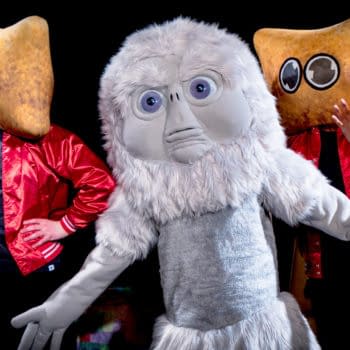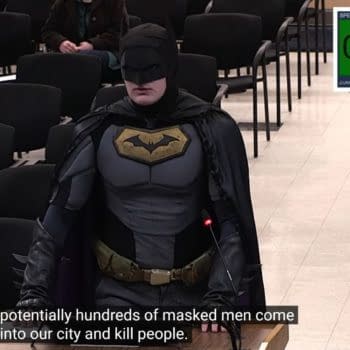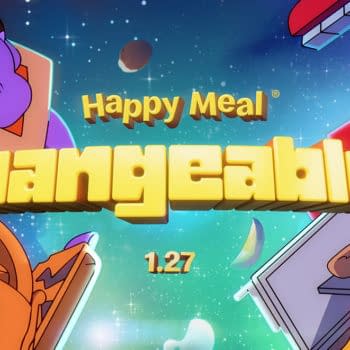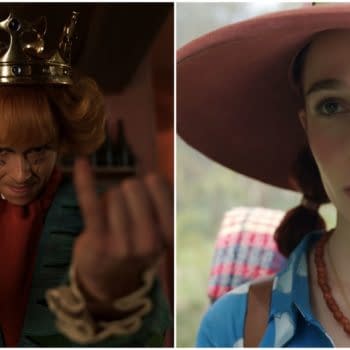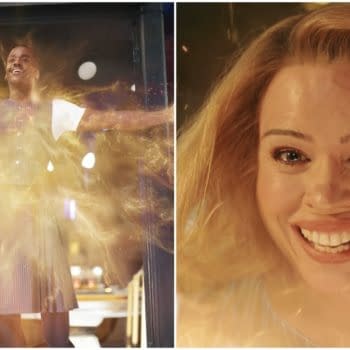Posted in: Books, Pop Culture, TV | Tagged: All That We See of Seem, ken liu
All That We See or Seem: Ken Liu Discusses His New Sci-Fi Thriller
Science Fiction writer Ken Liu discusses his latest work, All That We See or Seem, an intense cyberthriller with a unique hacker heroine.
Article Summary
- Ken Liu unveils All That We See or Seem, a cyberthriller starring hacker heroine Julia Z chasing a dream artist
- Explores the impact of AI on art, relationships, and identity through a near-future sci-fi lens
- Julia Z's backstory and mission are shaped by the dangers of treating people as machines in a tech-driven world
- All That We See or Seem launches a new ongoing series, with each book as a standalone cyber-thriller adventure
The prolific Science Fiction writer and essayist Ken Liu, fresh from the Netflix release of Pantheon, his epic animated hard Science Fiction animated series about the Singularity adapted from his short stories, has published his latest novel, a return to Science Fiction with his latest book. This time, All That We See or Seem is a cybercrime thriller set five minutes in the future that introduces Julie Z., a maverick white hat hacker who has to track down and rescue an artist who uses AI to recreate dreams from an international crime syndicate.
We had the opportunity to interview Liu about the new book and series featuring his latest heroine and avoided as many spoilers as ever, since you really should discover her and the story for yourself. You'll see what makes Liu's books distinctive from other Science Fiction.
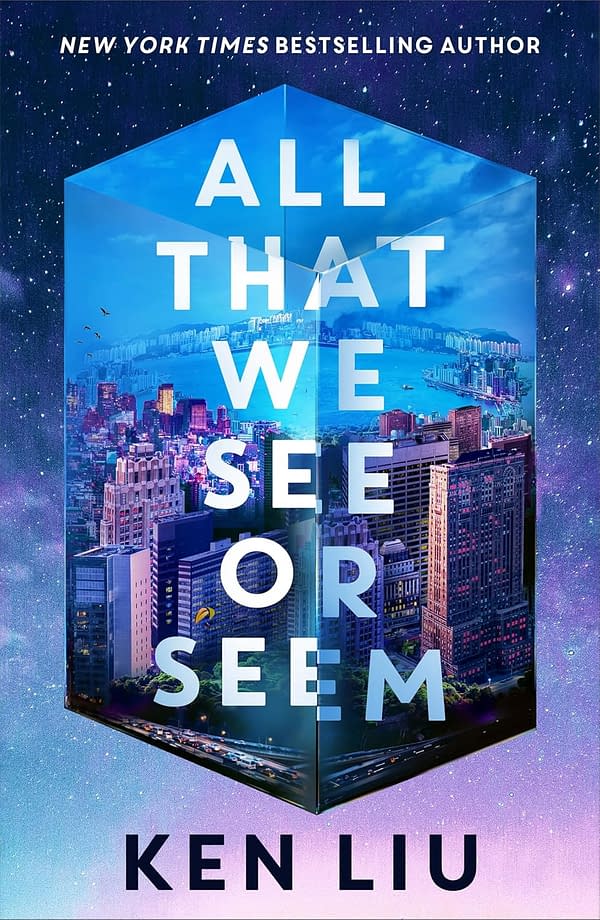
Hi Ken, congrats on the launch of All That We See Or Seem. I enjoyed the book a lot. It's another direction for you, where you switch genres after the Silkpunk series and your hard Science Fiction stories, like the stories that inspired the Pantheon TV series, which deals with the Singularity and the destiny of Humanity. The new book seems to be going in the Cyberthriller genre, but you push the technological and philosophical boundaries into Science Fiction instead of the current reality. What was your thinking behind that?
Let me start with a quick logline for the novel to give some context: Julia Z, a reclusive hacker, is asked to rescue an AI-aided dream-artist from an international crime ring. But as she travels across the country, hunting and being hunted, she realizes that she must confront the darkness in her own past and in her psyche.
As a writer, I want each of my series to be different. So, every time I start a new thing, it's got to be in some genre I haven't done before.
I like thrillers for their momentum: everything has to happen on the run, in the moment, which is the opposite of the expansive POV used in The Dandelion Dynasty. The kind of philosophical questions you can explore are different when telling a story in this mode.
Julia Z is, to me, a story told in the realist mode—there's very little speculation here. Pretty much every technological trick described is already possible, or only five minutes in the future. But like all realist novels, it's not about literal reality; rather, I use it to explore the mythology of technology. This first Julia Z adventure is about how ubiquitous AI is changing art, relationships, and selfhood. And as Julia pursues Elli, the dream-artist, across the country, she's also interrogating the nature of the American Dream.
Did you develop the story or the character of Julia Z or Elli first? How did you decide on Julia Z as the main character for a new series of books? I'm always curious when a writer decides on a male or female main character who's a crusader or avenger, since their reactions and choices are always subtly different.
I first met Julia Z in the aftermath of the pandemic. One day, as I was thinking about the consequences of ubiquitous AI on the arts, she simply appeared and told me that I was wrong. The real danger of AI, she told me, had nothing to do with the Singularity or the displacement of humans by machines; instead, it was the way we would all start to treat each other as machines. I found that intriguing and wanted her to tell me more. That was how I came to know her.
Now that I know her better, I think Julia fits in the tradition of thriller heroines like Clarice Starling, Letty Davenport, Jane Whitefield: shaped by a horrific past she can't forget, wielding a set of unique skills that she's ambivalent about, compelled nonetheless to seek justice and liberty.
Julia's use of AI and her deep knowledge of code and hacking go deeper than most other books, but it's Elli's work dilemma, with her interaction with criminals, that drives the book into science fiction. Without spoiling too much, can you talk about what inspired her plot and the existential and philosophical implications that push the themes further than crime thrillers?
I think of technology as a language, a way to express our deep human nature, to make tangible the patterns of our minds. And like any language, technology is both shaped by the mind and shapes the mind of the speaker. This is where Elli comes in.
There is a great deal of anxiety at this moment among artists. Naturally, we're concerned about the future of human art in the age of AI. However, I don't find worrying about being displaced by machines who imitate interesting as a driver for my own art; instead, I'm much more interested in imagining the new kinds of arts that are possible when humans have learned to work with AI as a new medium of expression (in the same way artists learned to use the camera as a medium of expression and invented the language of cinema back in the late 19th and early 20th centuries. Elli is a oneirofex, an artist whose art consists of vivid dreams, a performance during which an audience of strangers comes together to dream under her guidance. To perform her art, she has to use AI.
Readers familiar with Philip K. Dick's work may recognize the vivid dream as a modern answer to Mercerism from Do Androids Dream of Electric Sheep. That allusion is deliberate. How can technology enable us to reach into the collective unconscious, to dream together? This question is far more interesting to me than questions about how AI may impact economics or make it easier for office workers to craft PowerPoints.
Vivid dreaming isn't just about shaping narrative and community; as Elli finds out, it also puts her in the path of people who exploit systems and bodies. So much of modern "AI"—indeed, so much of modern technology—actually relies on the mechanization of people, on the reduction of people into components of machines.
Institutions and markets turn us into components of systems and then deprive us of moral agency, all the while reassuring us that the way things are is the only way things can be. Elli and Julia are asked to make a moral decision: how can art be a tool of resistance, and what does that look like?
You'll have to read the book to find out the answer.
Are you planning a trilogy of books with Julia Z or is it meant to be an ongoing series depending on the readership and sales?
Definitely an ongoing series, and the books will be standalone with a shared cast. You can read them in any order you want. I've already written the second novel, and I'm planning the third.
As for how many I'll write, that largely depends on how long Julia wants me to be her Boswell. As long as she'll talk to me, I'm at her service.
All That We See or Seem by Liu is now available in bookshops.





